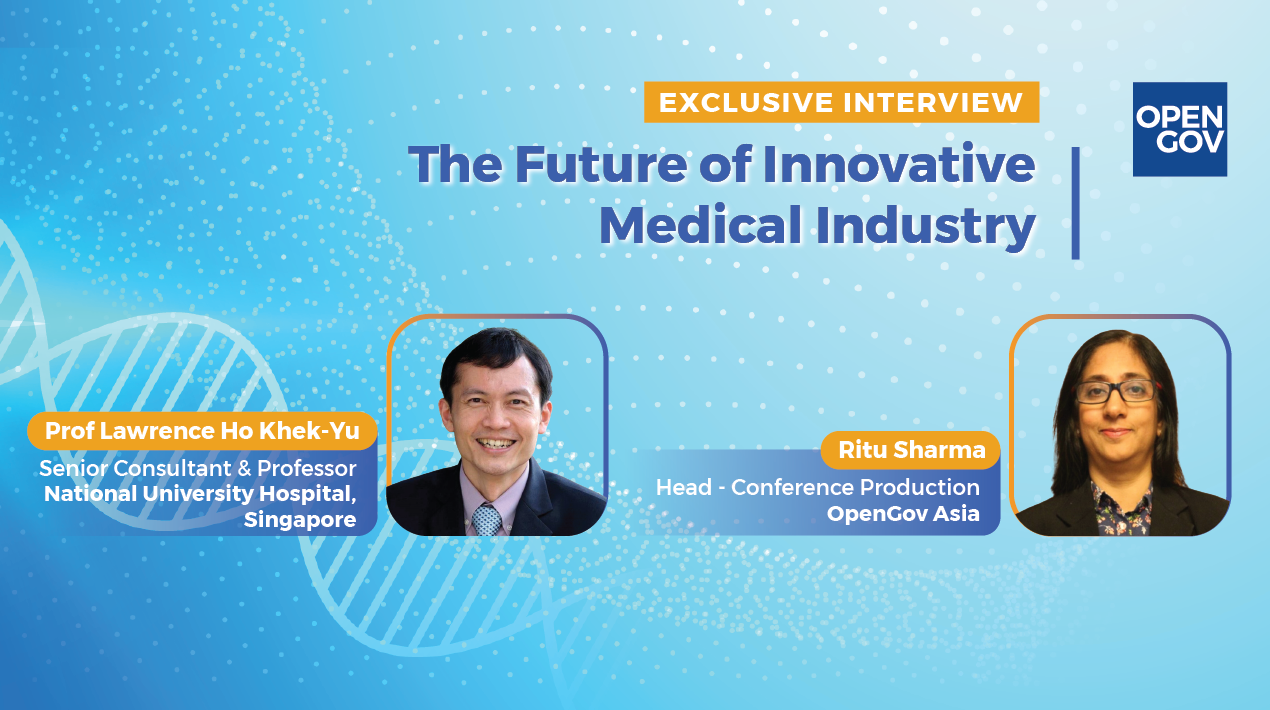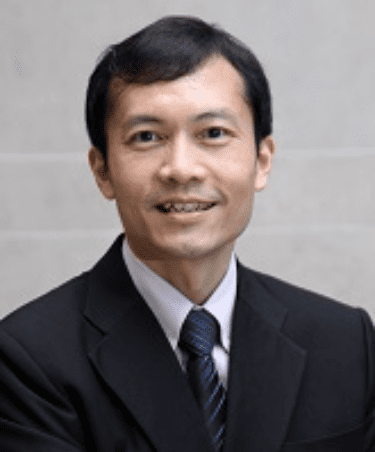
Having robust, effective, and easily accessible healthcare is essential for enhancing the standard of living, achieving better treatment results and increasing lifespan. Tech-enabled progress made in the field of medicine has been a boon, with groundbreaking innovations and discoveries paving the future of healthcare.
The healthcare sector is witnessing a rapid transformation, with the emergence of new technologies that promise to tackle the most pressing global healthcare challenges. MedTech has become increasingly crucial in this context and has opened up a plethora of possibilities for healthcare professionals to advance their skills and knowledge and expand their reach to underserved regions.
The advent of innovative healthcare technology has empowered doctors to provide better care to a greater number of people, irrespective of their geographical location and help prevent and combat emerging diseases effectively.
Technological advancements offer more effective medication, more accurate diagnostics and improved drug delivery systems giving hope for better patient care and prognoses. Integrating healthcare components through technology can also lead to more efficient and accessible healthcare services while lowering costs.
The healthcare industry hugely benefits from technology, which has been the driving force behind the significant progress made thus far. Technology will continue to play a crucial role in catalysing further advancements in healthcare, enabling healthcare professionals to provide better care, develop innovative treatments and improve patient outcomes.
The Impact of Digital Technology on Healthcare
 During an exclusive interview, Prof Lawrence Ho Khek-Yu, a Senior Consultant, Professor, and Director, Centre for Innovation in Healthcare at the National University Health System in Singapore acknowledged the significant influence of COVID-19 on healthcare practices. Social distancing measures have had a profound impact on healthcare delivery both inside and outside the hospital.
During an exclusive interview, Prof Lawrence Ho Khek-Yu, a Senior Consultant, Professor, and Director, Centre for Innovation in Healthcare at the National University Health System in Singapore acknowledged the significant influence of COVID-19 on healthcare practices. Social distancing measures have had a profound impact on healthcare delivery both inside and outside the hospital.
“The outbreak has brought about a significant transformation in the digital healthcare landscape. With social distancing measures in place, teleconsultations have become increasingly prevalent, and patients, as well as healthcare providers, have had to adjust to this new format of healthcare delivery,” Prof Lawrence explains.
While the adoption of teleconsultations has seen a good uptake, other digital systems such as digital identification for tracking hospital entry and exit have encountered hurdles during implementation.
Prof Lawrence has identified the lack of an integrated healthcare ecosystem as a major challenge to the successful implementation of telemedicine. While video consultations are prevalent, the scarcity of examination tools and delays in medication delivery remain major obstacles. The limited access to medical information and the inability to provide detailed explanations or drawings further impede the progress of telemedicine.
Additionally, elderly patients, and other segments of society, may have difficulty using technology. Moreover, telemedicine cannot replicate the nonverbal and emotional aspects of in-person interaction. To overcome these obstacles, he feels, telemedicine in healthcare consultations and visits must be refined and expanded.
Prof Lawrence emphasises the need for the medical industry to evolve and improve its diagnostic and treatment capability. Current diagnostic techniques are limited to the five senses but there is a significant potential to collect more accurate and comprehensive patient data through the integration of sensors and artificial intelligence (AI) technology. This could lead to more precise diagnoses and tailored treatment plans, ultimately improving patient outcomes.
“Telemedicine may have some advantages, such as reduced travel time and longer appointments, but it will only be successful if patients see it as a viable alternative to face-to-face consultations,” Prof Lawrence reiterates. “It is important to have a gradual evolution and improvement in the medical industry, as opposed to dramatic changes driven by hype.”
He believes current medical developments primarily focus on the developers and creators rather than the end-users. This approach needs to be reoriented towards a more user-centric model for future medical development, including its cost-effectiveness.
Systems should be developed that take into account the specific needs and preferences of patients, healthcare providers and other stakeholders. This would ensure that healthcare development is better aligned with the needs and goals of those who will ultimately benefit from it
Academia should be incentivised to look out for interests outside of its own research driven solely by academic interests such as self-serving publications and ranking are no longer practical nor justifiable by public funding. There is a growing consensus that the focus of research should shift towards the development of practical applications.
In addition, he stresses the importance of investors in promoting innovation and addressing gaps within the healthcare ecosystem. He suggests that investors should prioritise addressing population-level issues, rather than focusing solely on niche areas.
As people’s lifespans continue to extend, addressing the requirements of an ageing population has become increasingly critical. It is crucial for startups to thoroughly explore this market and develop innovations specifically tailored to the needs of this demographic.
Drawing on the example of Singapore, which has implemented technology to support its elderly population, he suggests investors consider this increasingly important and growing segment when evaluating potential startups for investment.
“To effectively address the complexity national healthcare poses, a systems approach to problem-solving is necessary, where sustainability and equality take precedence over profits,” advocates Prof Lawrence. “Rather than focusing on building more structures, it is important to prioritise addressing issues of affordability and inequality through technology.”
Urban Ideas and Solutions Through LKYGBPC
The Lee Kuan Yew Global Business Plan Competition (LKYGBPC), which began in 2001, is a biennial global university start-up competition hosted in Singapore. Organised by Singapore Management University’s Institute of Innovation and Entrepreneurship, focuses on urban ideas and solutions developed by student founders and early-stage start-ups.
Prof Lawrence, who serves as a member of the judging panel, believes assigning mentors to teams based on their area of expertise can offer valuable guidance and support. This is just one of the many initiatives undertaken by the panel to foster, encourage, and sustain the entrepreneurial drive of the LKYGBPC participants.
In his view, when discussing the fundamental contrast between innovation and entrepreneurship, he feels that innovation involves tackling issues with fresh perspectives and novel ways, while entrepreneurship requires both discipline and adaptability in managing growth.
“Many people fail in business because they lack discipline and work independently,” says Prof Lawrence. “Cultivating a larger community of individuals who are adaptable and capable of working as part of a team is critical to entrepreneurship success.”
He considers seeking advice and collaborating with others crucial to surmount obstacles in innovation and entrepreneurship. Innovators should be willing to seek the assistance and counsel of others, particularly those with expertise in areas such as regulation or commercialisation.
People must understand that there are unique challenges at each stage of the process and bringing them to the right people to help solve them is important. Moreover, entrepreneurship demands financial discipline that benefits from the guidance and mentorship of multiple individuals.
Singapore’s drive to remain competitive in the global arena is a case in point. The country, he says, serves as a springboard, connecting people and providing access to other countries. To attract and retain talent and expand into new markets, he recommends leveraging Singapore’s strengths, such as its robust education system and its position as a hub for the Asian ecosystem.
Prof Lawrence co-invented the revolutionary Master and Slave Transluminal Endoscopic Robot (MASTER), which has now been incorporated into Endomaster.
He has mentored three startups in the fields of photonics and medical technology to identify potential failures and early warning signs through his own experiences.
Prof Lawrence has served as co-chair for the Gut & Obesity in Asia (Go Asia) Workgroup, which investigates the correlation between obesity and gastrointestinal and liver ailments in Asia.
In summation, he stresses the importance of perseverance in the face of adversity, as it enables individuals to learn and prepare for future challenges.
“Those who have never failed or struggled in the trenches may not be able to achieve long-term success,” Prof Lawrence concludes.
















